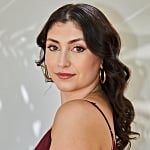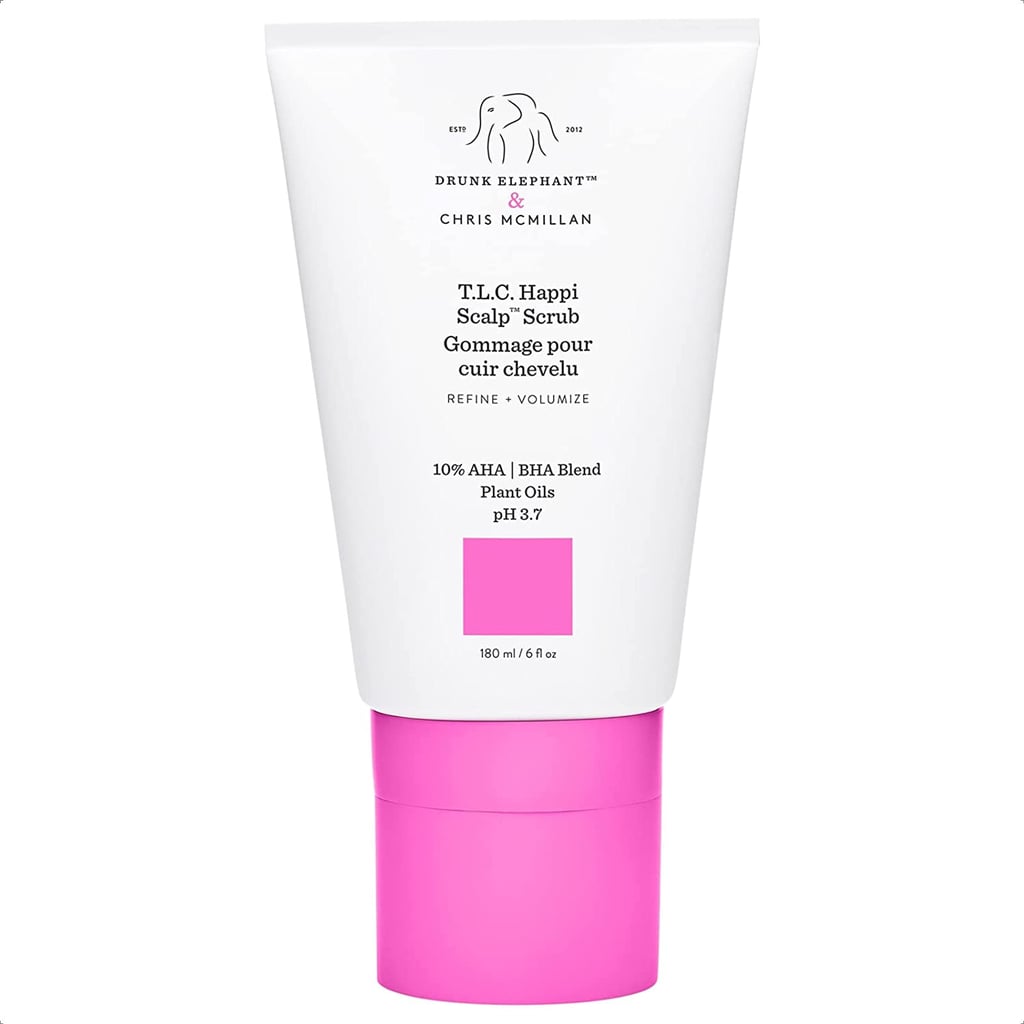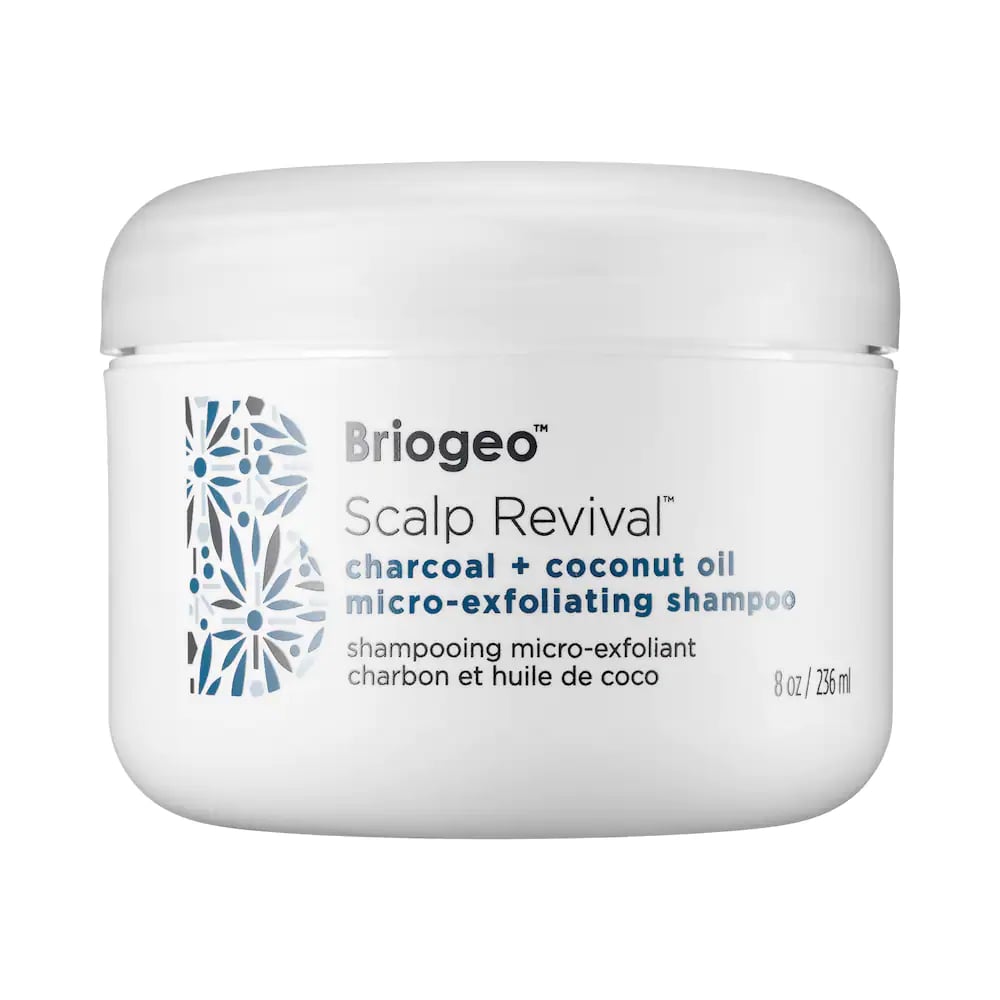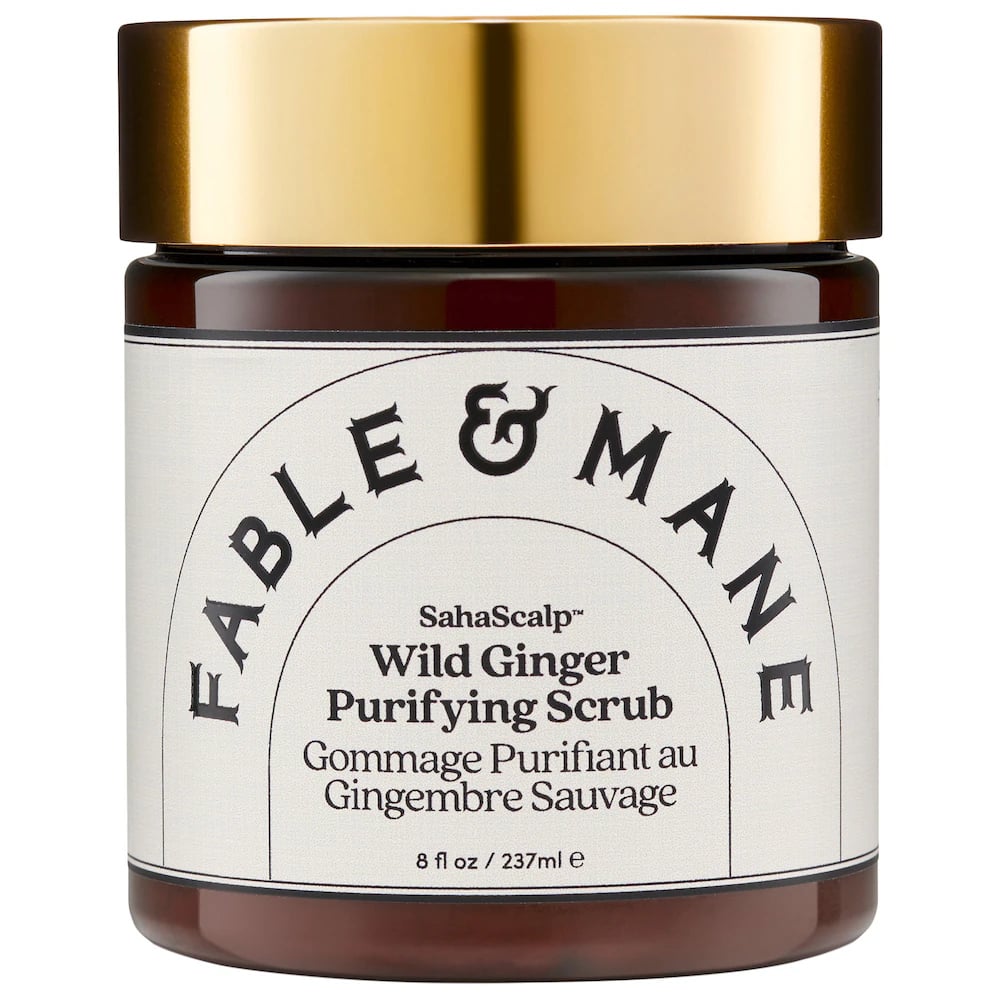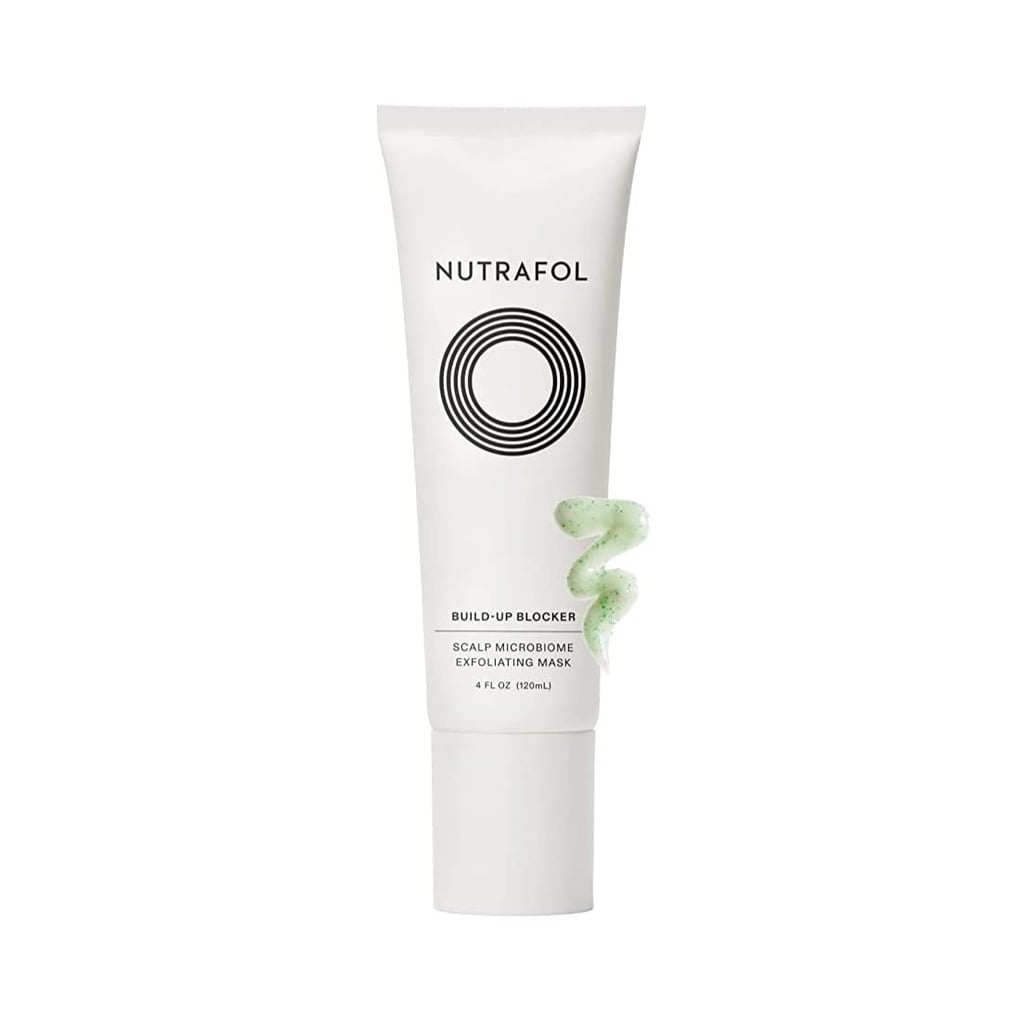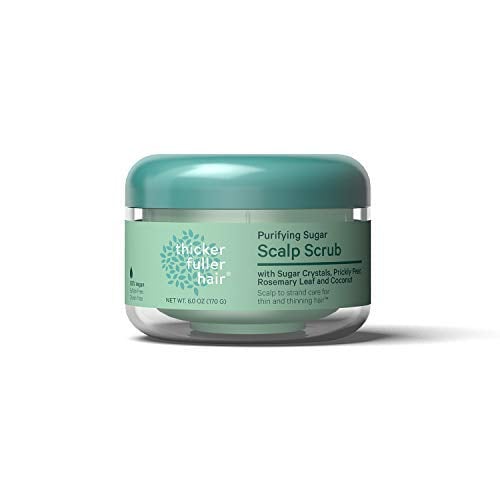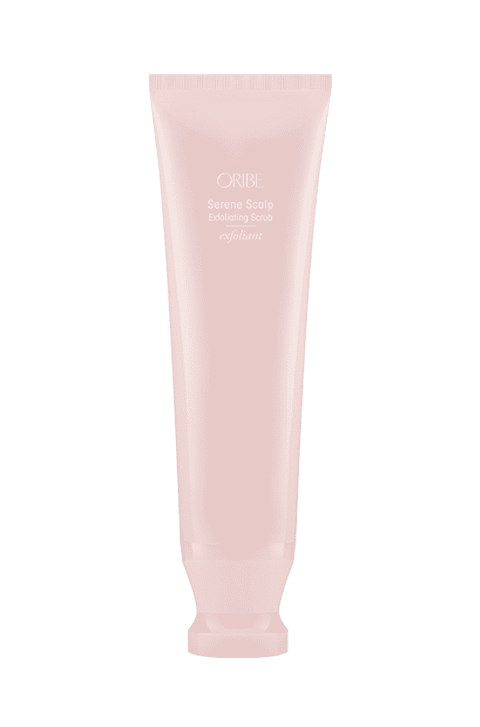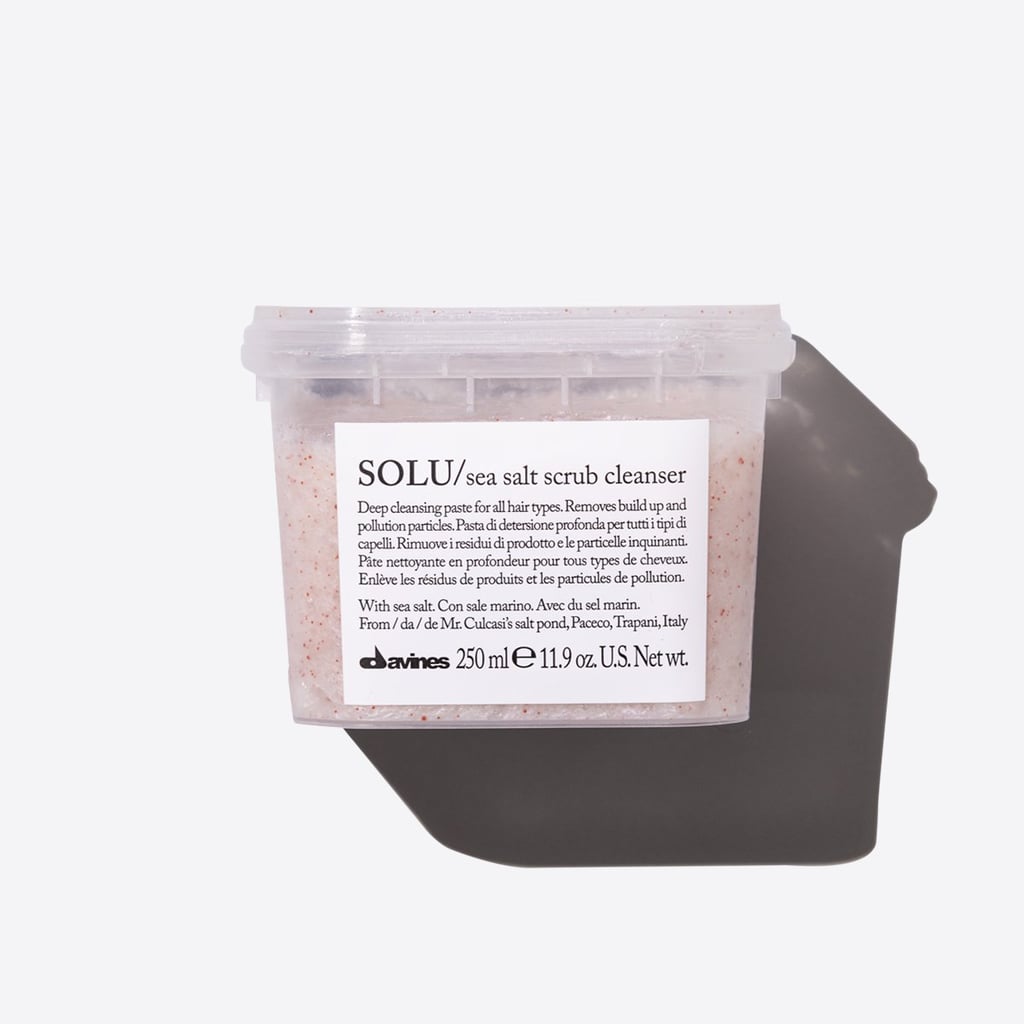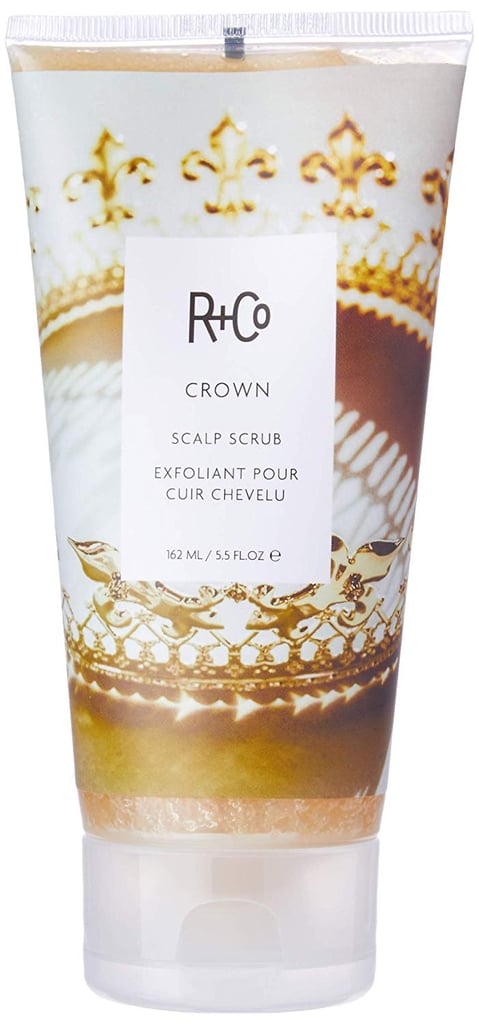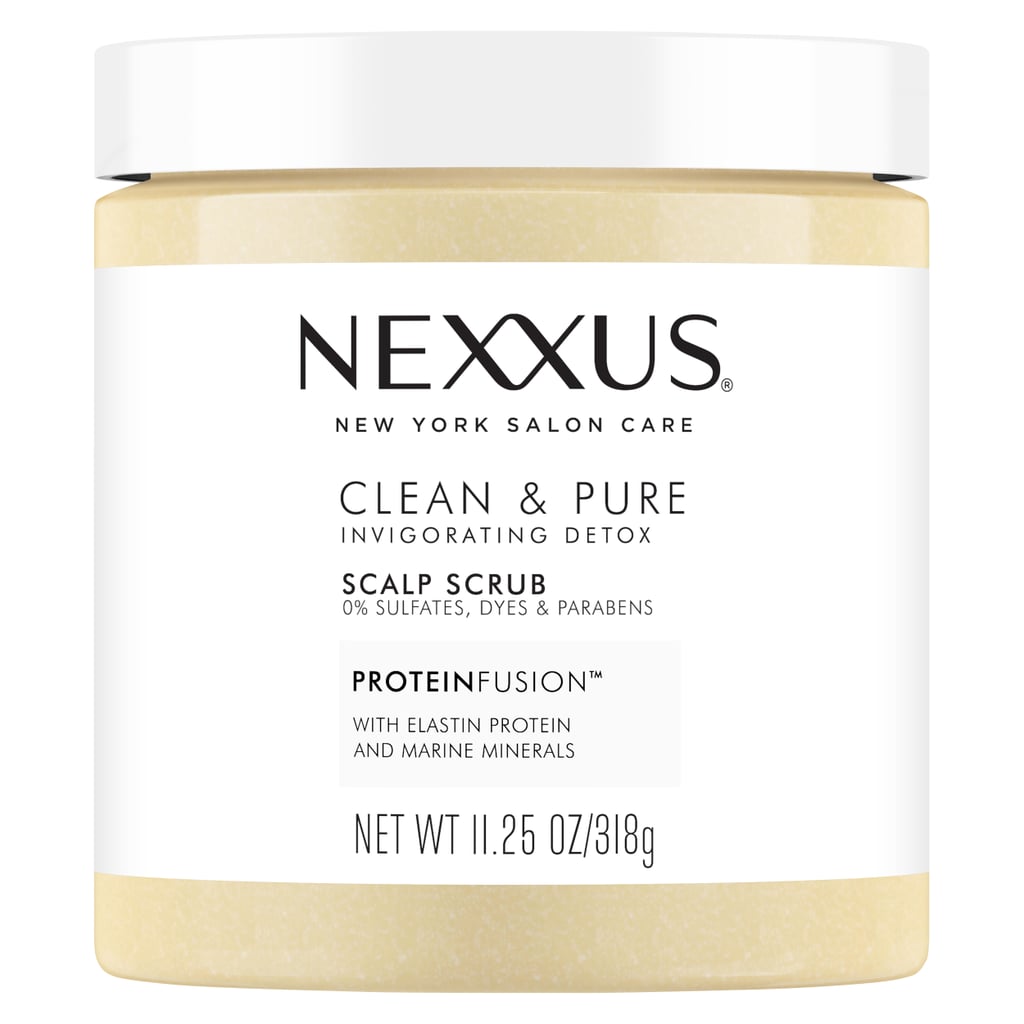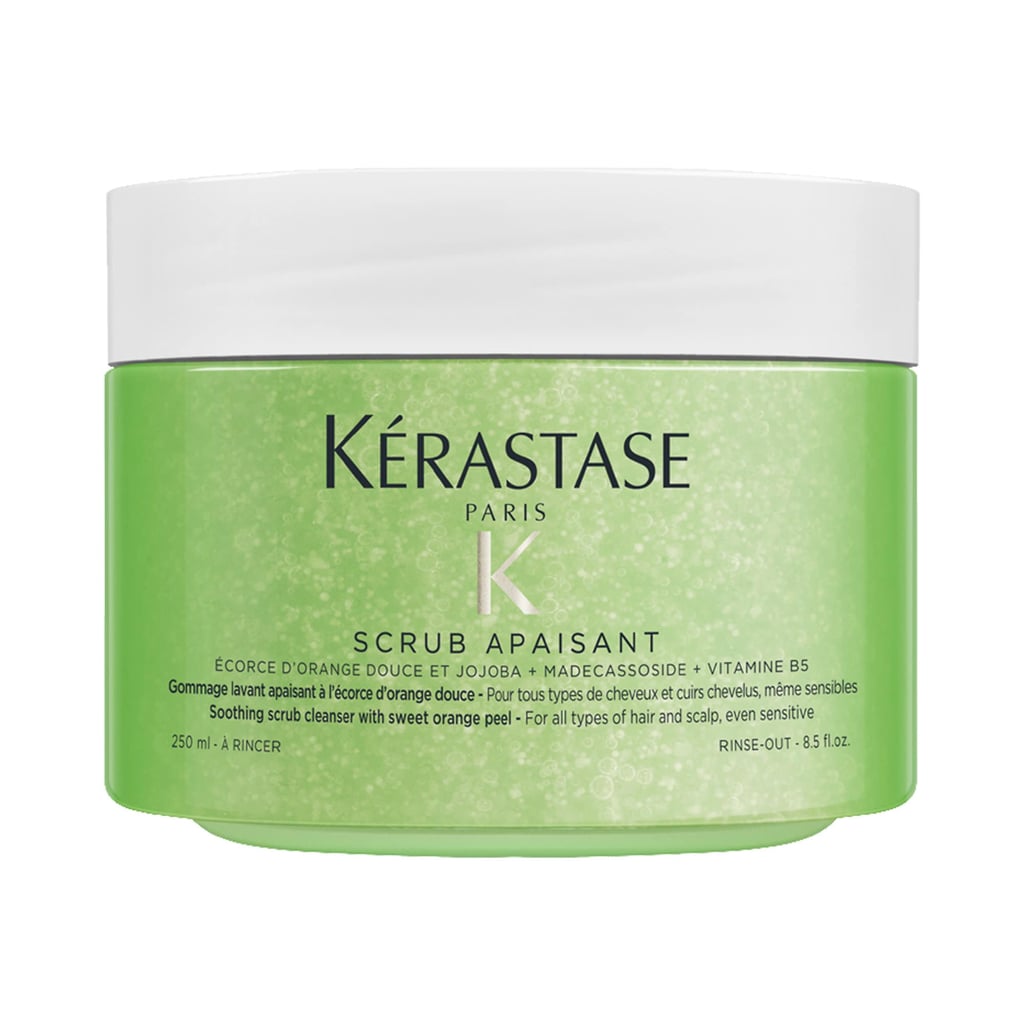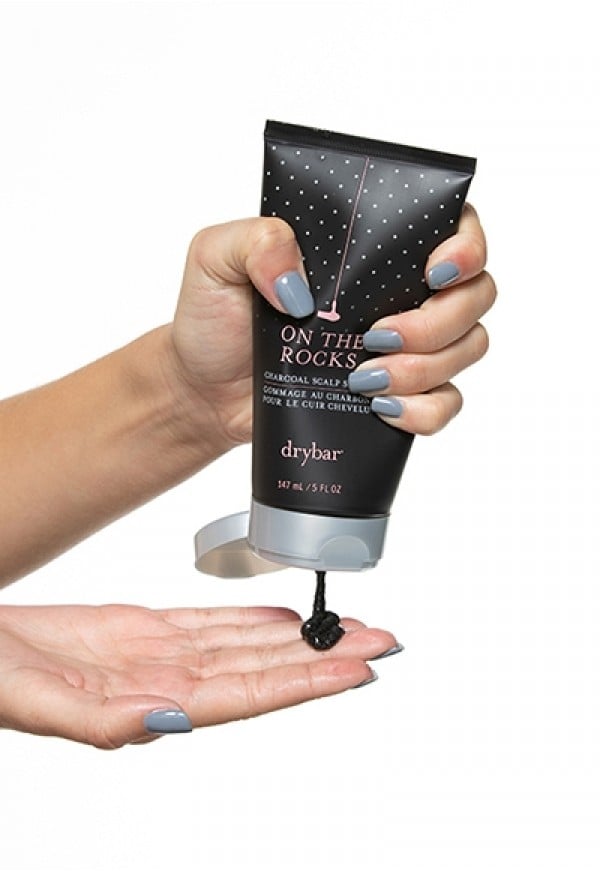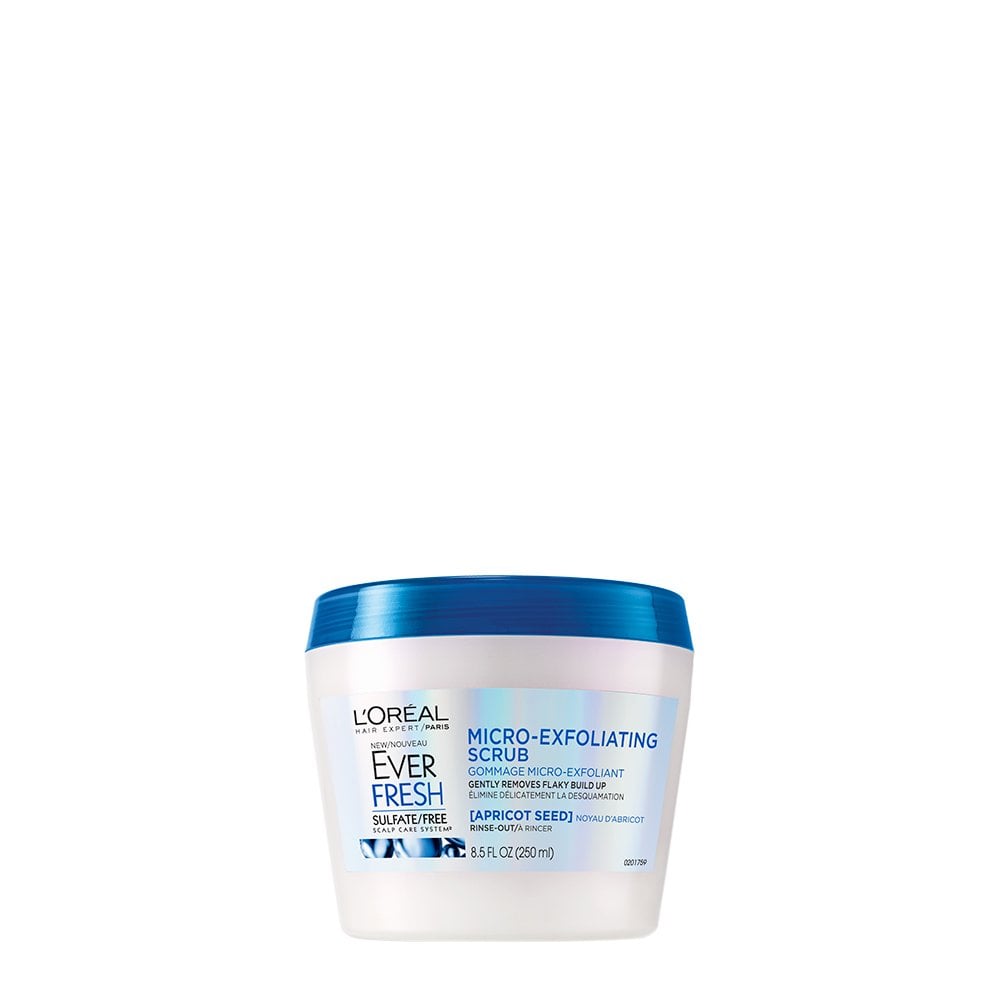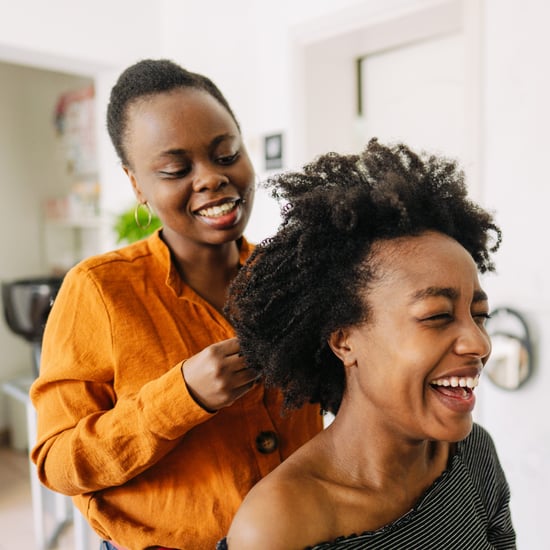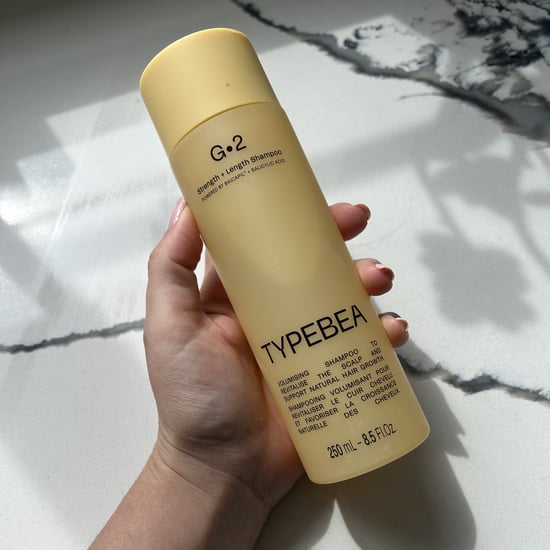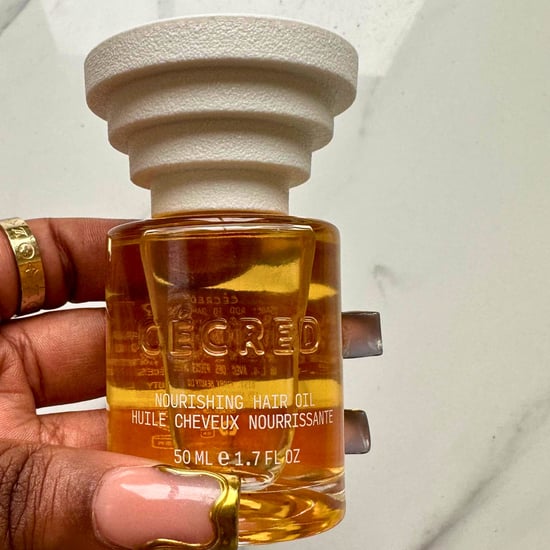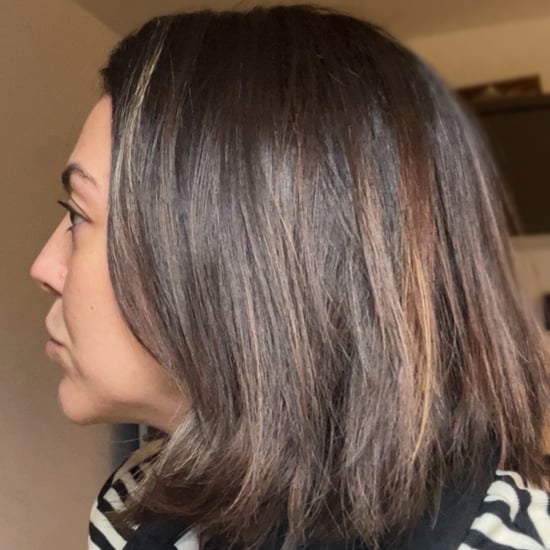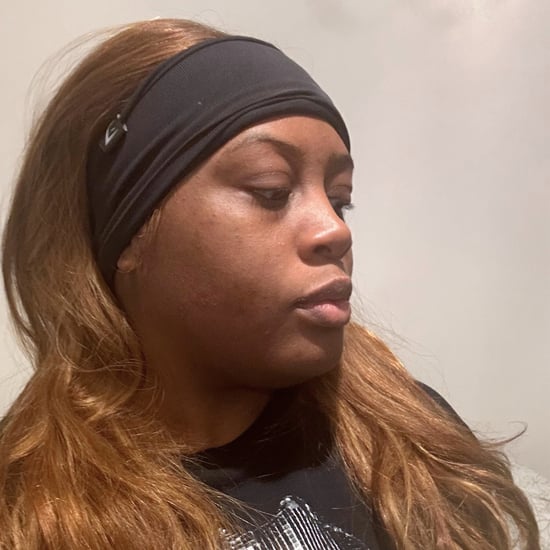Best Scalp Scrubs: Benefits and How to Use
The Best Scalp Scrubs For Healthy Hair
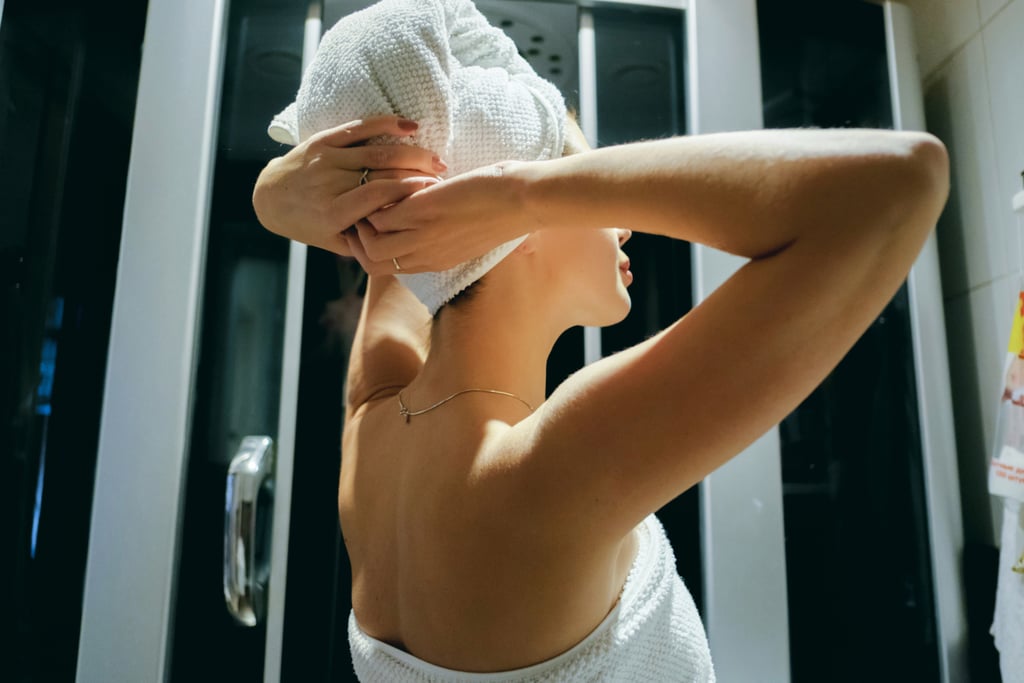
As POPSUGAR editors, we independently select and write about stuff we love and think you'll like too. If you buy a product we have recommended, we may receive affiliate commission, which in turn supports our work.
Scalp scrubs have really blown up over the last few years. Sure, they existed before that, but most people didn't really use them, at least not at home — they were reserved for professional treatments at the salon and felt like a luxury. Fast-forward to today, and scalp scrubs are everywhere, with no shortage of products on the market.
Whenever a new category of products pops up, many people are understandably sceptical at first. They find themselves wondering: is this really necessary? And if you're new to using a scrub on your head in the shower — or just new to scalp care in general — you can probably relate. In recent years, there's been a big push for the skinification of hair care, where skin-care brands are expanding into the hair industry, and scalp products are frequently involved.
Many people swear by scalp scrubs for dandruff and hair growth, but if you're still unclear on the benefits of scalp scrubs, we have you covered. Keep reading to learn more about why you should use one in your shower routine and get product recommendations for the best options on the market.
Scalp-Scrub Benefits
Because scalp scrubs are a relatively new product category, they haven't undergone rigorous testing in a clinical setting. That said, many experts do still recommend them for improving and maintaining the skin on your scalp, similar to the skin on your face.
"Scalp scrubs help remove sebum and dead skin cells while cleansing, balancing, and purifying the scalp," David Adams, consulting trichologist for Thicker Fuller Hair, tells POPSUGAR. "This is essential to maintain a healthy scalp, which in turn promotes a healthy head of hair."
It's widely known that exfoliation is key to healthy, clear skin on your face and body, and the same principle applies to your scalp. "There are anecdotal reports that scalp scrubs may improve scalp health through a couple of mechanisms," says Spencer Hawkins, MD, a board-certified dermatologist at Advanced Dermatology and Cosmetic Surgery in East Greenwich, RI. "First, they may promote exfoliation, removing excess scale, dirt, oil, product buildup, and other debris present on the scalp. Second, they may improve [the] absorption of active ingredients on the scalp for hair growth or dandruff."
If you're someone who likes to push the limits on how often you wash your hair and frequently rely on dry shampoo and other styling products, scalp scrubs can be beneficial for removing product residue on the scalp. If left untreated, this buildup can lead to itchy, dry skin and even clogged hair follicles.
How Do Scalp Scrubs Work?
There are two different types of scalp scrubs on the market, just as there are two different forms of facial scrubs: physical and chemical. "Physical scalp scrubs use tiny gritty particles (such as salt, sugar, or [jojoba] microbeads) to physically help remove dead skin cells, dirt, and oil on the scalp," Dr. Hawkins says. "Chemical scalp scrubs rely on diluted alpha and beta hydroxy acids such as salicylic acid, glycolic acid, and lactic acid to help remove excess scale."
Using these kinds of active ingredients in hair-care products isn't completely novel. "Active ingredients commonly found in chemical scalp scrubs (such as salicylic acid) have been used in shampoos designed to remove excess scale," Dr. Hawkins adds. "These shampoos have been studied and found to be effective in improving scalp health. Scalp scrubs may have similar benefits as they often share active ingredients." But just like any form of exfoliation, you don't want to overdo it. "Once a week would be ideal, but realistically, once a month would still provide great results," Adams says.
Do Scalp Scrubs Contribute to Hair Loss?
When you first start using a scalp scrub, you may notice a bit more hair falling out when you rinse, but Adams confirms it's nothing to be worried about. "Hair fall is a natural part of the hair lifecycle," he says. "Using a scalp scrub may dislodge or loosen hairs that are ready to fall anyway, making it appear like there is more hair collected in your drain." In other words, scalp exfoliators aren't causing healthy hair to fall out but rather shedding dead, loose hair that was going to anyway. "It is normal to lose around 50 to 100 strands per day, and some of your loose hair strands tend to get held in place by styling products, so when you exfoliate the scalp, your loose hairs will fall out," Adams says. He related it to the hair loss you see with regularly brushing your hair. "If you brush your hair every day, you do not notice hair fall as much as you would if you are only brushing every two to three days."
An exception to this, however, is if you're using a scalp scrub that's too rough. "It is important to look at the ingredients of the scalp scrub and make sure it is not abrasive and unhealthy for the scalp," Adams says.
Best Scalp Scrubs on the Market
Some of the most common exfoliating ingredients in physical scalp scrubs are salt, sugar, and coffee, and there is a difference between each one.
"Salt can be very abrasive to the scalp and can actually alter the pH," Adams says. That's not to say all salt-based scrubs are bad, but you'll want to be gentle when using one of these — no need to rigorously massage it in. Sugar — Adams's go-to exfoliator — is a nondrying exfoliant and natural humectant that helps seal in moisture while gently buffing away dead skin cells and product buildup from your scalp.
Dr. Hawkins also recommends exercising caution when it comes to scrubs containing natural oils. "For patients with a history of contact allergies, please read the label to avoid any potential allergens," he says. "Many scalp scrubs have natural oils that can cause contact dermatitis in susceptible patients."
Ready to add this new step to your shower routine? Keep scrolling for the best scalp scrubs on the market.
— Additional reporting by Balim Tezel
Best Scalp Scrub: Drunk Elephant T.L.C. Happi Scalp Scrub
The Drunk Elephant T.L.C. Happi Scalp Scrub ($36) uses a combination of AHAs and BHAs to help break down buildup and dead skin on your scalp. It's also packed with antioxidants. The small applicator tip on the packageing makes it easy to apply directly to your scalp, mess-free.
Best Scalp Scrub: Ceremonia Papaya Scalp Scrub Shampoo
The Ceremonia Papaya Scalp Scrub Shampoo ($29) is a shampoo and scalp scrub in one. It has a creamy whipped texture and uses salt and papaya enzymes to exfoliate. You can use it once a week in place of your regular shampoo by applying it to wet hair, massageing in, and rinsing. Finish with your conditioner.
Best Scalp Scrub: Briogeo Scalp Revival Charcoal + Coconut Oil Micro-Exfoliating Scalp Scrub
The Briogeo Scalp Revival Charcoal + Coconut Oil Micro-exfoliating Scalp Scrub ($42) is a sulphate-free scrub that's perfect for all hair types. It contains charcoal to detoxify the scalp and remove impurities, coconut oil to moisturise the skin on your head, and a complex of peppermint, spearmint, and tea tree oil to reduce inflammation.
Best Scalp Scrub: Fable & Mane SahaScalp Wild Ginger Purifying Scrub
Formulated with pink Himalayan salt to exfoliate and wild ginger to purify, the Fable & Mane SahaScalp Wild Ginger Purifying Scrub ($34) is just as much a lifestyle product as it is a hair-care product. Thanks to the luxe-looking, recyclable packageing, you won't mind leaving it out in your shower or on your vanity.
Best Scalp Scrub: Nutrafol Exfoliating Scalp Mask
If you want a scalp scrub that's been clinically proven to work, look no further than the Nutrafol Exfoliating Scalp Mask ($49). This mask has been shown to dissolve sebum, balance oil production, remove buildup, and help with dry skin. It is safe for colour-treated hair and extensions and features a small tip to make application easier.
Best Scalp Scrub: Thicker Fuller Hair Nourishing Daily Scalp Scrub
Adams recommends the Thicker Fuller Hair Nourishing Daily Scalp Scrub For Thin and Thinning Hair ($8). It's a sugar-based scrub that helps promote a healthy scalp by removing dead skin cells and product buildup. Simply add some water to a dime-size amount of scrub and work into your scalp.
Best Scalp Scrub: Oribe Serene Scalp Exfoliating Scrub
Give your scalp the experience of a fancy spa trip with the Oribe Serene Scalp Exfoliating Scrub ($52). It'll not only get rid of built-up product but also nourish and hydrate your hair with a blend of AHAs, glycolic acid, and soothing flower complex.
Best Scalp Scrub: Davines Solu Sea Salt Scrub Cleanser
The editor-favourite (and POPSUGAR Beauty Award winner) Davines Solu Sea Salt Scrub Cleanser ($45) sources its sea salt from the Trapani coast in Sicily and combines it with beet sugar extract and jojoba oil to make getting rid of product buildup on your scalp feel luxurious. While some salt scrubs can be abrasive, this one is a bit gentler.
Best Scalp Scrub: R+Co Crown Scalp Scrub
The bottle doesn't just look fancy as hell, the R+Co Crown Scalp Scrub ($38) also contains exfoliating salicylic acid and mineral-rich kaolin clay that'll make you feel like you're giving your scalp and hair the royal treatment.
Best Scalp Scrub: Nexxus Scalp Scrub
Formulated with no parabens, dyes, or fragrances, the Nexxus Clean & Pure Scalp Scrub ($19) is the cleaner solution to sloughing away any gunk sitting on your scalp.
Best Scalp Scrub: Kérastase Soothing Scrub
The green-apple-scented Kérastase Soothing Scrub ($56) sloughs away dead skin cells sitting at the surface while simultaneously hydrating your scalp in the way only a salon treatment can — and the smell alone will keep you coming back for more.
Best Scalp Scrub: Drybar On the Rocks Charcoal Scalp Scrub
The Drybar On the Rocks Charcoal Scalp Scrub ($32) features detoxifying charcoal as well as fine sugar crystals that wash away seamlessly in the shower.
Best Scalp Scrub: L'Oréal Paris EverFresh Micro-Exfoliating Scrub
Perfect for budget beauty buyers, the L'Oréal Paris EverFresh Micro-Exfoliating Scrub ($15) contains teensy apricot seeds to exfoliate and eliminate excess oil buildup — at less than $20.
